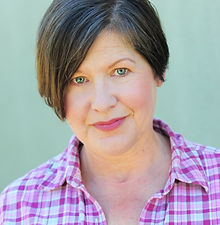
A Doll''s House
October 10 - 26, 2025
by Henrik Ibsen
Adapted and directed
by David Valayre
PHOENIX THEATRE
414 Mason Street
San Francisco
with
Alan Badger
Tom Bleecker
Lisa-Marie Newton
Mona Vimal
David Valayre
and
Amy Coty (Stage Manager)
Jonathan Loo (Sound)
Mona Vimal (Costumes)
Katrina van Winkle (Lighting)
about the play
Why A Doll’s House? And why now?
Works of art that survive, survive because they talk to us beyond the vagaries of time. A Doll’s House is one such work of art. But to speak to all times and all cultures, the work of art must, to a certain extent, be amorphous. It must lend itself to being interpreted by one and all. It must be a hanger for coats of evolving shapes, styles, colors. It must, whatever the dominant trend of thought, moral system, fashionable ideas, provide the stimulus for reflection, debate, empathy or repulsion, identification or rejection, judgment and counter-judgment. For stage plays, this means openness, ambiguity, more questions than answers – answers wither with time, questions don’t.
Why would a woman leave a husband she loved and their three young children? When A Doll’s House first opened, in 1879, the play seems to have been received as an answer: Nora’s departure was a rebellion against the infantilized status her husband and society forced on her. To a nineteenth-century audience, the ending was surprising, shocking, offensive even. The word ‘doll’ – and therefore the explanation of the title – does not appear until the very end of the play: “I have been your doll-wife, just as at home I was papa's doll-child; and here the children have been my dolls.” The original function of the play was in its resolution, and the first playbill could have included a spoiler alert: “Please don’t tell your friends about the ending.”
The twentieth century carried on the “rebellion” interpretation, which the feminist movement read as a premonition and a gesture of hope and militancy. Nora closing the door [literally] on her relationship with her husband and her young children was viewed as a positive development, a sign of maturity, a progress.
If we approach A Doll’s House, not as a time capsule, but as a work of art whose interpretation evolves with time, questions remain. Today, the condescending and infantilizing attitude of the male characters has survived and mutated into what is now labeled as “toxic masculinity”.
How old is Nora – not in calendar years, but her psychological age? At which stage of her life cycle does she see herself? The play does not mention Nora’s age. Her infantilization invites us to see her as younger than her husband. Stage productions and screen adaptations typically present her as a woman around 30 years of age. In the second half of the nineteenth century, in Norway, life expectancy at birth was 40 years. So, was her decision to leave a positive leap towards a better future? Or was it the heart-rending decision of a woman who, having spent most of her life being belittled, has little prospect of a future ahead of her? How much guilt is Nora experiencing? How much of that guilt is she able to process? Is Nora’s state of mind when she leaves closer to that of Eliza Doolittle’s in Shaw’s Pygmalion? Or that of Raskolnikov’s in Dostoevsky’s Crime and Punishment?
With the passing of time, expectations have been reversed: A nineteenth-century wife infantilized by her husband was expected to take it on the chin in the name of the sanctity of marriage. A twenty-first-century wife is expected to fight back, leave him, fight for her children, or demonstrate why she can’t. Time has had a distancing effect on the play. In the nineteenth century, A Doll’s House revolved around the question: “What should/will Nora do?” Today, it’s “Why didn’t she do it earlier?”
David Valayre

cast & crew

Alan BADGER (Torvald Helmer) is proud to have appeared in GT's productions of Pagnol's Marseille Trilogy (Marius, Fanny and César), as well as Olivia's Kitchen, Tartuffe, The Provoked Wife, The Marriage of Mademoiselle Beulemans, No Exit, and So? Sue Me!. Favorite roles with other theaters include Noakes in Stoppard's Arcadia, Lyman in Redwood Curtain, and Belarius in Cymbeline.

Tom BLEEKER (Dr. Rank) is honored to work with GenerationTheatre in this production of A Doll's House. Previous roles include Dussel in Palo Alto Players’ production of The Diary of Anne Frank, Brabantio in Ubuntu Theater Company’s production of Othello, Matthew in Sunlight at Dragon Theater, where he also played Udrea in Star Without a Name and Petey in The Birthday Party. He portrayed Jules in My Three Angels at Masquers Playhouse, and J Alfred Prufrock in The Love Song of J Alfred Prufrock at the Bay One Act festival and Baron Van Swieten in Amadeus at Hillbarn Theater. He has worked as an actor, mime, puppeteer, and as a psychologist.

Lisa-Marie NEWTON (Nora) has performed at least 3 previous times at the Phoenix Theatre, and is happy to feel so at home here. Lisa-Marie has received 3 Bay Area Theatre Critics' Circle Award nominations (for Diana in Next to Normal, Sarah Jane Moore in Assassins, and Meredith in Bat Boy, the Musical) and won once (for Assassins). In addition to her work onstage, Lisa-Marie can also be seen in film, both in front of and behind the camera, recently making her directorial debut in The Overlook, a short she wrote and produced. She can be seen in the feature films Weekend King and Spin Junkies, and 2 short films she wrote are currently making their way to film festivals. You can see Lisa-Marie regularly at Oracle Park, home to the San Francisco Giants, where she is a tour guide (the only singing tour guide). Website: www.LisaMarieNewtonActor.com.

Vishalini Mona VIMAL (Mrs. Linde) has been passionate about theater since college and has been active in Bay Area theater scene for many years. She has worked with major Bay Area South Asian Theater groups. She has done production and costume design for many GT productions, and a number of short independent films, two of which have been selected in International Film festivals and won awards. As an actor, Mona appeared with GenerationTheatre in Knock, The Marriage of Mademoiselle Beulemans, and Door to Door. In her real life, she works at a biotechnology company and has taken up road biking with the same passion she brings to theater.

David VALAYRE (Nils Krogstad) has been GenerationTheatre´s Artistic Director since its creation, eighteen years ago. With GT, he has directed his own plays (4Soldiers, DiTCH: A Comedy, BooKKeepers, Door to Door, Sea Turtles, Audition), as well as directed, translated and/or adapted works by Shakespeare, Molière, Racine, Marivaux, Sir John Vanbrugh, Ibsen, Marcel Pagnol, Jules Romains, Fonson & Wicheler, and Sartre. As an actor, he has appeared in Fanny, The Provoked Wife, Knock, César, Adieu Monsieur Haffmann, The Miser, A Game of Love and Chance, Olivia’s Kitchen, The Marriage of Mademoiselle Beulemans, and So? Sue Me!. David also teaches drama at San Francisco´s International School.

Amy COTY (Stage Manager) is a proud Chicago native who grew up in and around the arts. She performed with the orchestra in several musical theater productions and worked on sound for dramatic performances, classical ensembles and rock bands, the latter of which she was a member. This production is Amy's second show with GenerationTheater, having previously worked on So? Sue Me! She is grateful for the opportunity to continue learning the skills of stage management and thanks the cast and crew for their support and collaboration.

Jonathan LOO (Sound) has a background in television broadcast and other interests in film production, photography, and prop design. Although his peers have tried to push him into the limelight of camera & stage, he very much prefers the shadows. He collaborated on science-fiction film Miles From Nowhere, designing costumes, building and managing props, and choreographing fight scenes. He has a passion for the creative process, which he finds equally important as the final product itself.


